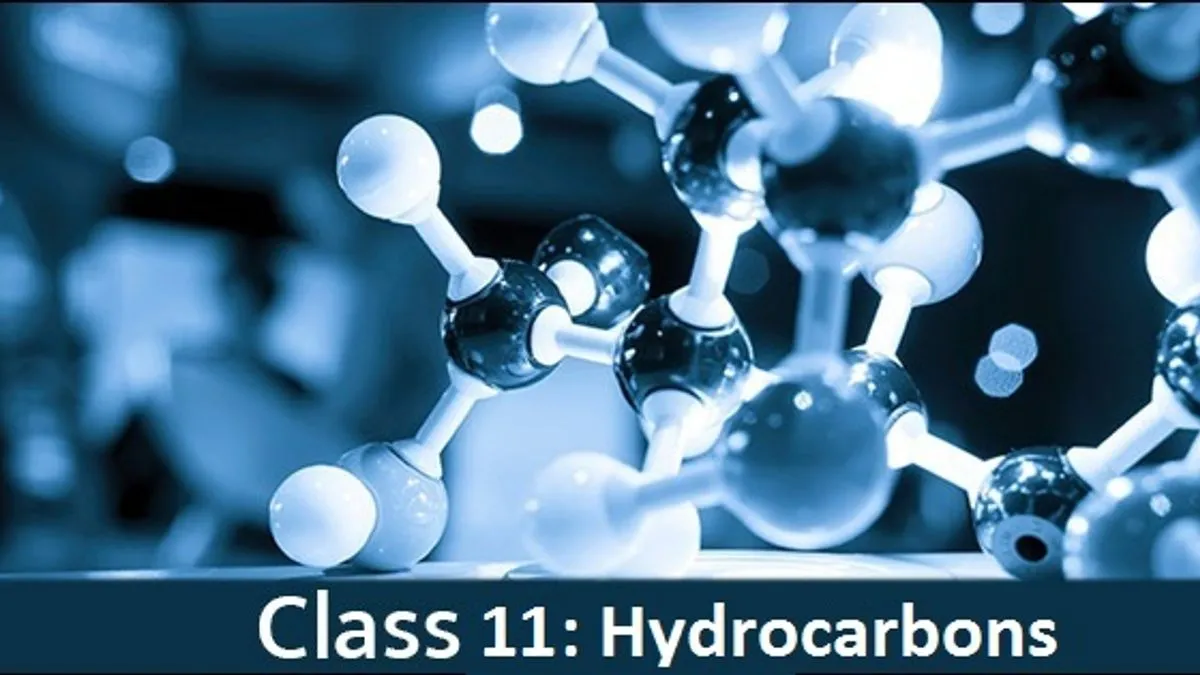In order to score high marks in a subject, the best way is to practice different types of problems based on conceptual topics explained in that subject. For this, NCERT books are considered to be the best source as these books offer a variety of questions/problems to practice.
The questions given in NCERT textbooks at the end of each chapter not only help for understanding the concepts in a better way but are also important from the examination point of view. Hence, we suggest students to read the NCERT books thoroughly and solve the questions given at the end of each chapter.
Here we are providing the NCERT solutions for class 11 Chemistry chapter - Hydrocarbons. These solutions are explained by the subject experts and will help students find the right approach to solve the Chemistry NCERT questions.
Main topics discussed in Class 11 Chemistry chapter- Hydrocarbons are:
- Classification of hydrocarbons
- Alkanes: their preparation and properties
- Nomenclature and Isomerism of alkanes
- Alkenes: their preparation and properties
- Structure of double bond
- Alkynes: their preparation and properties
- Structure of Triple Bond
- Aromatic hydrocarbon
- Structure of benzene
- Preparation and properties of benzene
- Directive influence of a functional group in monosubstituted benzene
- Carcinogenicity and toxicity
CBSE Class 11 Chemistry Syllabus 2018 - 2019
Some of the questions and their solutions from NCERT Solutions for Class 11: Hydrocarbons, are as follows:
Q. What effect does branching of an alkane chain has on its boiling point?
Sol. The boiling point of the alkanes is governed by the inter-molecular Van der waals forces. Stronger the force, the greater will be the boiling point of the alkane. Now, this van der Waals' force of attractions is directly proportional to the surface area. Surface area decreases with the increase in branching. As a result, the Van der Waals force also decreases which can be easily overcome at a relatively lower temperature. Hence, the boiling point of an alkane chain decreases with an increase in branching.
Q. Why does benzene undergo electrophilic substitution reactions easily and nucleophilic substitutions with difficulty?
Sol. Presence of delocalized 6-electrons above and below the benzene ring, make it a rich source of electrons. As a result, it attracts the electron deficient species, i.e., electrophilic reagents with much ease as compared to the nucleophiles that are electron-rich sources. That's why benzene gives electrophilic substitution reactions easily and nucleophilic substitution reactions with difficulty.
Q. Suggest the name of a Lewis acid other than anhydrous aluminium chloride which can be used during ethylation of benzene.
Sol. Ethylation of benzene involves the addition of an ethyl group on the benzene ring. Such a reaction is called a Friedel-Craft alkylation reaction. Anhydrous FeCl3 or SnCl4 can be used in place of anhydrous AlCl3 as a catalyst during the ethylation of benzene.
Download all the NCERT solutions for Class 11: Hydrocarbons, from the following link:
